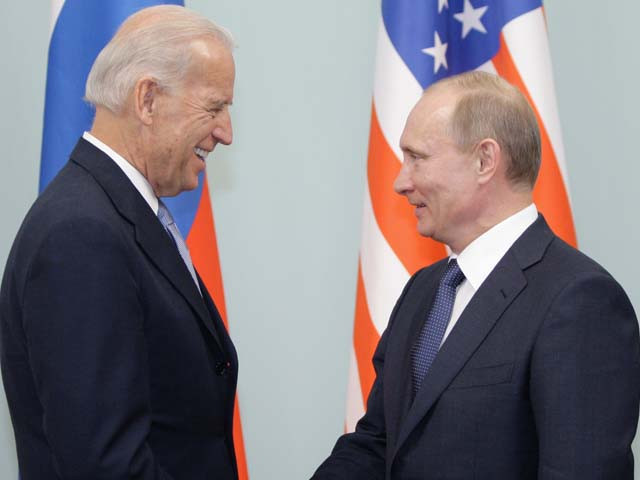The Biden Administration is re-evaluating practically every element of foreign policy that it inherited from former President Donald Trump, but nowhere could this potentially impact Pakistani interests more than in Afghanistan. National Security Council spokeswoman Emily Horne announced on Friday that the United States (US) will “assess whether the Taliban was living up to its commitments to cut ties with terrorist groups, to reduce violence in Afghanistan, and to engage in meaningful negotiations with the Afghan government and other stakeholders” as part of the February 2020 deal that the group agreed to with the Trump Administration. Interestingly, this also comes against the backdrop of the Biden team declaring that it’ll investigate last summer’s Russian bounty scandal.
Taken together, these are worrying signs that the Biden Administration might be preparing to scapegoat Russia if it reverses former President Trump’s Afghan drawdown for unrelated reasons such as those connected more to domestic political considerations than legitimate security ones. The political Russophobes who comprise the Biden team are well known for pushing baseless conspiracy theories about Russia, especially the infamous but ultimately debunked one that former President Trump was secretly Russian President Putin’s puppet all along. It’s therefore politically convenient for them to scapegoat Russia as the “plausible pretext” for symbolically halting or potentially even reversing former President Trump’s military drawdown from Afghanistan.
It’s important to point out that there were actually three bounty scandals that were talked about over the past half year. The most well-known is the Russian one, but Iranian and even Chinese versions were also later reported upon by the Western Mainstream Media. The decision to go ahead with investigating only the original Russian narrative suggests that the Biden Administration is signalling to the other two that it doesn’t take the previous allegations made against them seriously. This could reinforce the goodwill that his team is trying to cultivate with both of them in pursuit of differing degrees of detente. No such intention exists on their side when it comes to Russia, however, which is why they might scapegoat it for changing course in Afghanistan.
They’d be well advised not to do that, though, since the long-term strategic risks of that potential decision far outweigh the hoped-for short-term domestic political benefits. Pakistani Foreign Minister Shah Mehmood Qureshi earlier urged the Biden Administration to stick to the policy that they inherited, which they might still seriously be considering since they reportedly decided to retain Special Envoy to Afghanistan Zalmay Khalilzad at least for now. This might speak to the tacit desire of the Biden Administration to proceed with the peace process without any significant disruption, in which case they could be playing the Russian card on the Afghan file for domestic purposes related to making it seem like they aren’t blindly going along with Trump’s policy.
Another educated conjecture is that the Biden Administration wants to signal to those dissident military leaders who were suspicious of Trump’s drawdown plan in the first place that it’s listening to their concerns and plans to discuss with them the pros and cons of continuing that course of action. That would explain why they’re telling the public that they’re investigating the Russian bounty scandal and assessing whether the Taliban was living up to its commitments. These two complementary announcements could provide the Biden Administration with the excuse needed to stop the drawdown or even potentially reverse it in a low-level but nevertheless symbolic way, though most likely far from repeating the folly of the failed Obama-era “surge”.
In the event that the Biden Administration does indeed halt or even partially reverse former President Trump’s Afghan drawdown, they shouldn’t mislead everyone about the reasons behind this decision by trying to scapegoat Russia for it after their bounty investigation finally concludes. They could simply say, for example, that they felt that their predecessor’s decision was premature and possibly even irresponsible from a security perspective, citing high-level military officials to corroborate that assessment instead of blaming it on Russia like the political Russophobes on his team might be preparing to do. That said, it would of course be best if the Biden Administration stays the course on Afghanistan, but that scenario can’t be taken for granted.



COMMENTS
Comments are moderated and generally will be posted if they are on-topic and not abusive.
For more information, please see our Comments FAQ